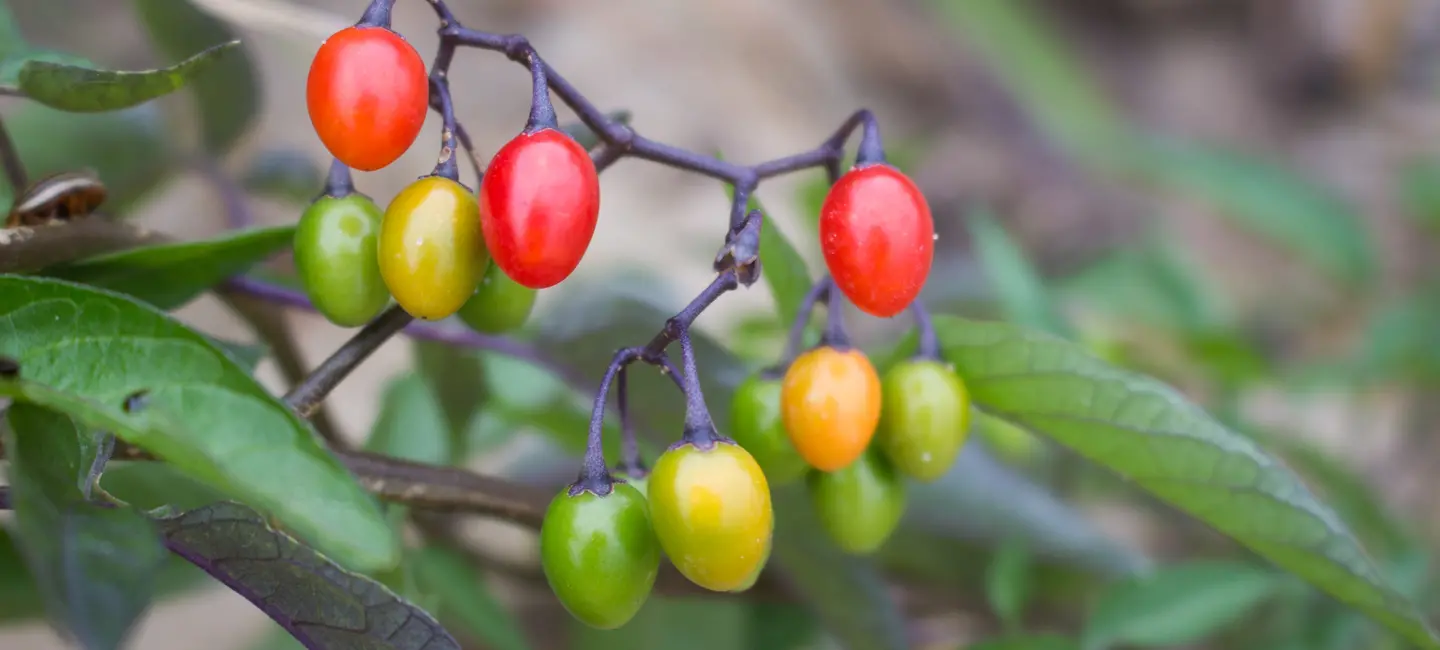
Bittersweet nightshade (Solanum dulcamara) is a vine-like plant in the same family as tomatoes and potatoes. The stem is used to make medicine.
The stem contains chemicals that might have anti-inflammatory effects. But the leaves and berries of bittersweet nightshade are poisonous.
People use the stem of bittersweet nightshade for acne, eczema, wound healing, and many other conditions, but there is no good scientific evidence to support these uses. Bittersweet nightshade leaves and berries can be toxic.
Is It Effective?
There is interest in using bittersweet nightshade for a number of purposes, but there isn't enough reliable information to say whether it might be helpful.
Is it Safe?
When taken by mouth: The STEM of bittersweet nightshade is possibly safe. But the LEAVES and BERRIES are poisonous and likely unsafe. Consuming the leaves or berries can lead to poisoning symptoms such as vomiting, diarrhea, convulsions, slowed breathing, and death.
When applied to the skin: The STEM of bittersweet nightshade is possibly safe.
Special Precautions & Warnings:
Children: Bittersweet nightshade is likely unsafe when taken by mouth in children. Some children have died from eating unripe bittersweet nightshade berries. There isn't enough reliable information to known if bittersweet nightshade is safe to apply to the skin in children. Stay on the safe side and avoid use.
Pregnancy and breast-feeding: Bittersweet nightshade is likely unsafe when taken by mouth while pregnant or breast-feeding. Some chemicals in this plant have been linked to birth defects in animals. There isn't enough reliable information to known if bittersweet nightshade is safe to apply to the skin when pregnant or breast-feeding. Stay on the safe side and avoid use.
Stomach conditions such as ulcers or irritable bowel syndrome (IBS): Avoid using bittersweet nightshade if you have one of these conditions. It can irritate the stomach and intestine and make these conditions worse.
It is not known if Bittersweet Nightshade interacts with any medicines. Before taking Bittersweet Nightshade, talk with your healthcare professional if you take any medications.
There are no known interactions with herbs and supplements.
There are no known interactions with foods.
Bittersweet nightshade berries and leaves are poisonous.
Bittersweet nightshade STEM has traditionally been used by adults in a dose of 1-3 grams by mouth daily. It's also been prepared as a tea, as well as applied to the skin as a compress. Speak with a healthcare provider to find out what dose might be best for a specific condition.
Amargamiel, Bitter Nightshade, Bittersweet, Blud Nightshade, Common Nightshade, Deadly Nightshade, Douce-Amère, Dulcamara, Fellen, Fellonwood, Felonwort, Fever Twig, Herbe à la Fièvre, Herbe de Judas, Herbe de Judée, Kakmachi, Morelle Douce-Amère, Morelle Grimpante, Mortal, Rubabarik, Scarlet Berry, Snake Berry, Solanum dulcamara, Staff Vine, Vigne de Judée, Violet Bloom, Woody, Woody Nightshade.
Information on this website is for informational use only and is not intended to replace professional medical advice, diagnosis, or treatment. While evidence-based, it is not guaranteed to be error-free and is not intended to meet any particular user’s needs or requirements or to cover all possible uses, safety concerns, interactions, outcomes, or adverse effects. Always check with your doctor or other medical professional before making healthcare decisions (including taking any medication) and do not delay or disregard seeking medical advice or treatment based on any information displayed on this website.
© TRC Healthcare 2024. All rights reserved. Use and/or distribution is permitted only pursuant to a valid license or other permission from TRC Healthcare.
